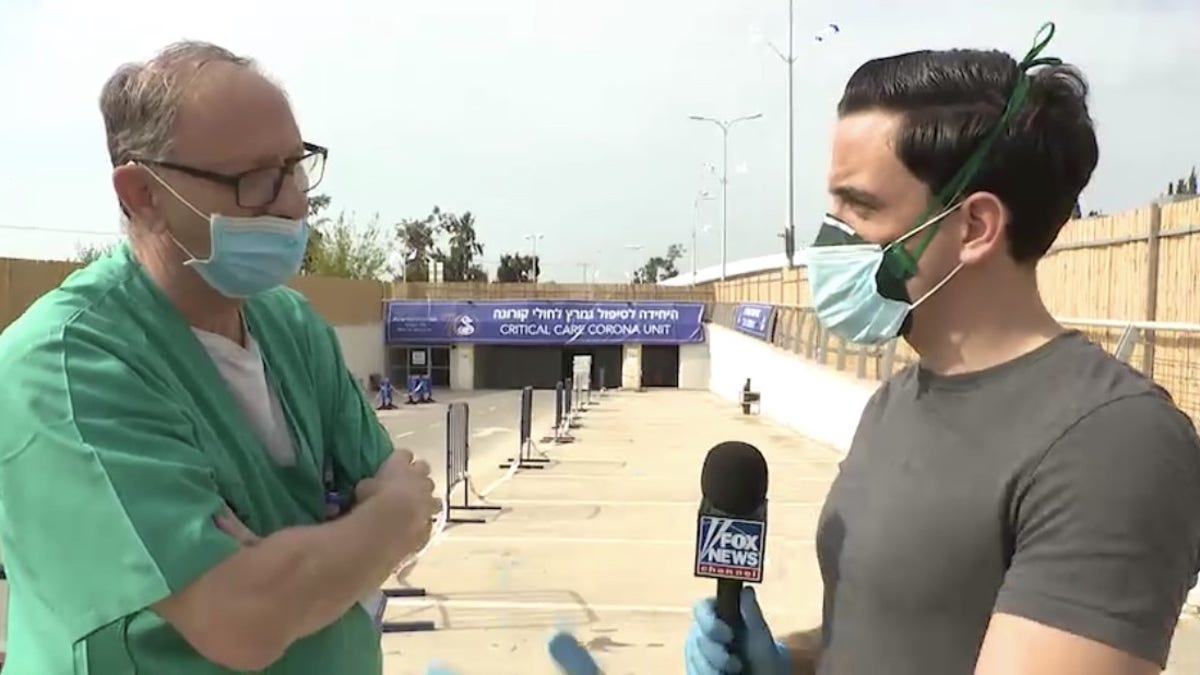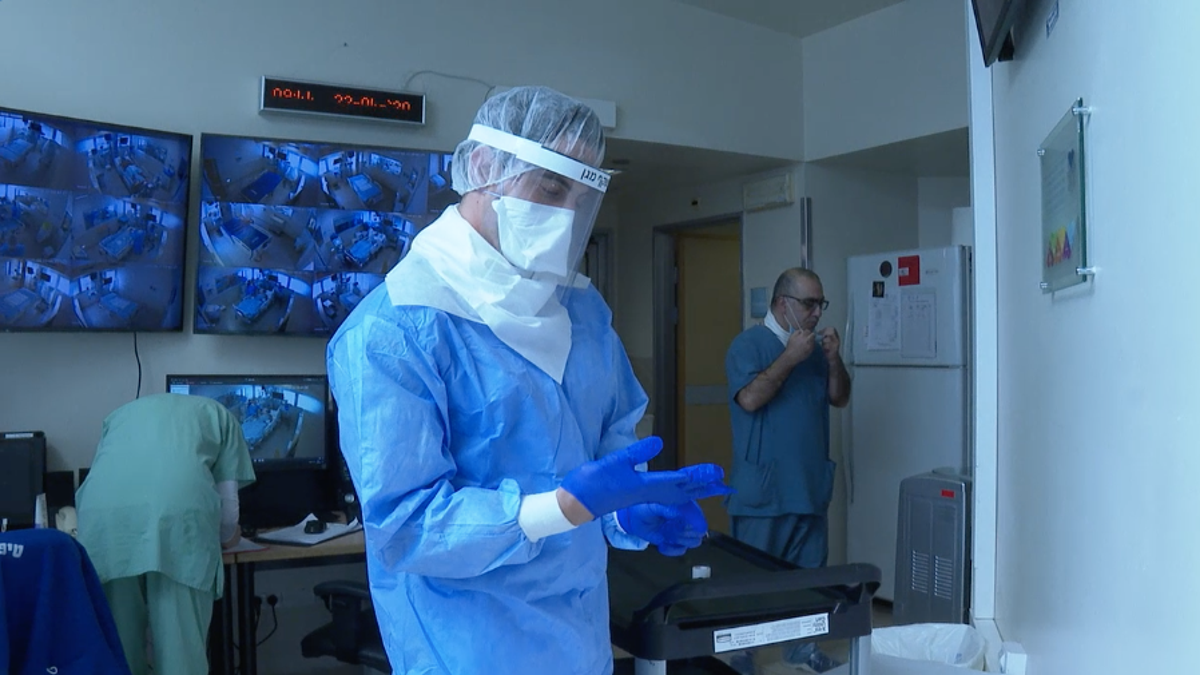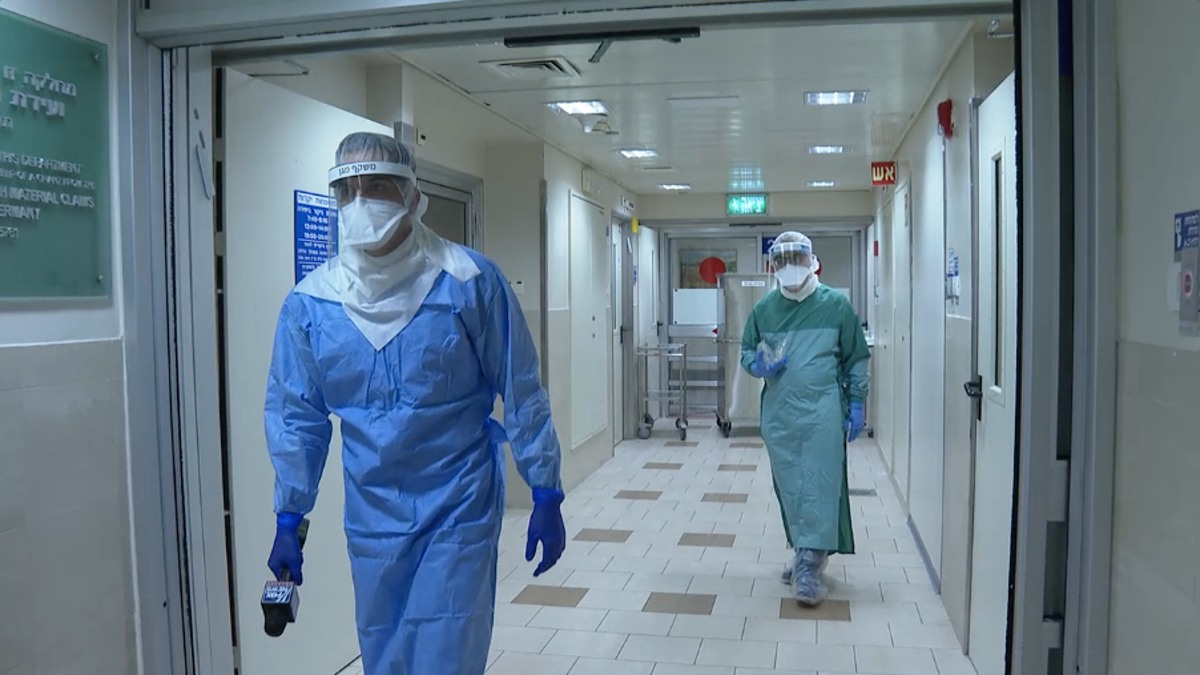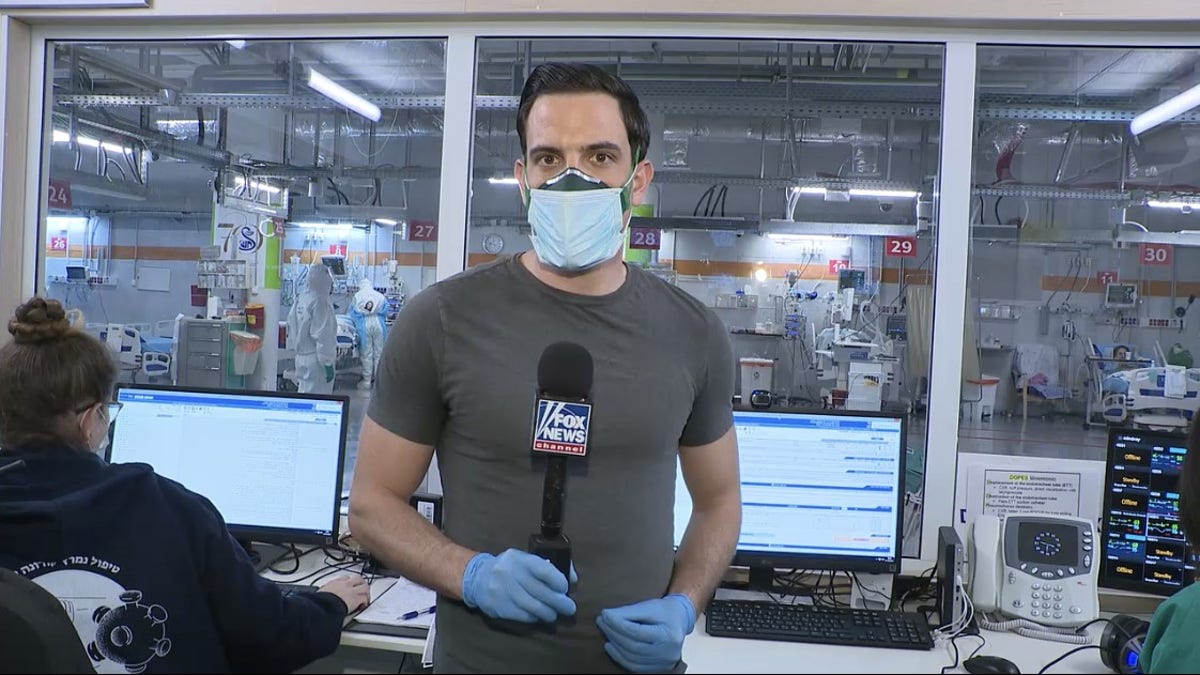An inside look at how Israel's frontline workers are battling coronavirus
Fox News' Trey Yingst speaks to doctors battling coronavirus at Israel's hospitals.
Get all the latest news on coronavirus and more delivered daily to your inbox. Sign up here.
TEL AVIV, Israel -- My visor starts to fog up every time I exhale.
Clenching my jaw, I notice the hospital-issued N95 mask slip a few millimeters down my nose.
When standing feet away from people infected with the coronavirus, you are acutely aware of the small barriers between yourself and the disease.
I've reported amid rocket attacks, been under sniper fire and gone live from locations where a bounty was put on Americans. In my free time, I go skydiving and cliff jumping.
There are very few things that scare me.
This is different.

Professor Haim Mayan (left), the head of the coronavirus critical care unit at Israel’s largest hospital, the Sheba Medical Center. (Fox News)
When my crew and I arrive at the hospital, we are ushered to a small room where nurses rest in between shifts. The coronavirus team at the Tel Aviv Sourasky Medical Center looks exhausted. Most have been doing these rounds for weeks, spending two hours at a time in personal protective equipment.
First we speak with a coronavirus social worker, Noy Koster, before going to see the patients. Her expression, though partially obscured by a mask, is uniquely comforting.
She’s had to tell numerous family members of COVID-19 victims that they must say goodbye.

Shoes need to be covered before entering the coronavirus ward. (Fox News)
As she recalls her experiences, watching as loved ones say a last prayer or hug one final time, she said she can almost see the memories flashing before her eyes.
When we finally make it inside the COVID-19 ward, the eyes of the patients stand out the most. You can see the fear in those who are alert. Those on ventilators are unconscious, in drug-induced comas.
Preparing to enter was a meticulous process. There is no room for error. A single mistake can be deadly.

Preparing to enter the coronavirus ward is a meticulous process. (Fox News)
Shoe covers on. Sanitize hands.
Smock on. Sanitize hands.
Add gloves, mask, hair net, visor. Sanitize hands.

The hospital's procedures leave no room for error. (Fox News)
CORONAVIRUS: WHAT YOU NEED TO KNOW
Once inside, it’s not anything like hospitals you see in afternoon soap operas. It’s much more raw. The bravery of the nurses and doctors is almost indescribable.
They don’t hesitate in their treatment. They dive right in, knowing all of the risks.

Protective equipment includes gloves, a mask and a visor. (Fox News)
More than 180,000 people around the world have died of COVID-19 infections. Among the dead are many doctors and nurses.
Less than 24 hours before, Professor Haim Mayan, the head of the coronavirus critical care unit at Israel’s largest hospital, the Sheba Medical Center, described the commitment of doctors as “willing to commit suicide” for patients.
As he looked out across a bay of patients, situated in a parking garage turned intensive care unit, he told me about losing his colleague to the virus.

(Fox News)
Mayan was responsible for telling the colleague's wife the news.
“When I gave her the news, the first thing she did was ask me if I was OK,” Mayan said.
We talked about how difficult the weeks of intense and emotional work had been on him.
CLICK HERE TO GET THE FOX NEWS APP
The professor, the social worker and the dozens of others I met this week had many things in common: They are brave. They are resilient. And they are willing to die to save others.

